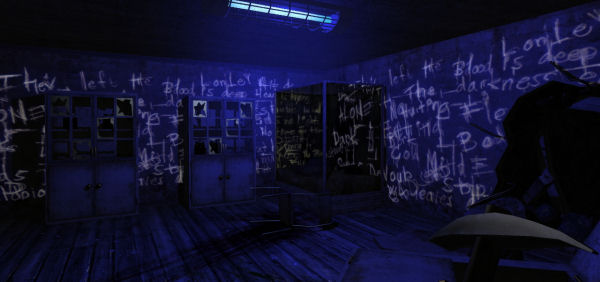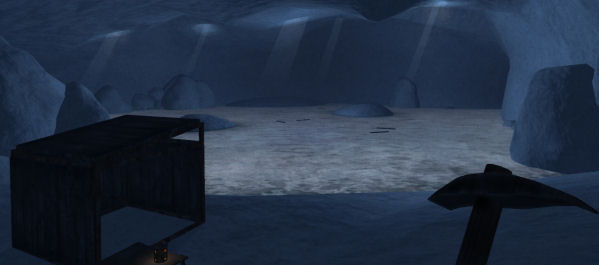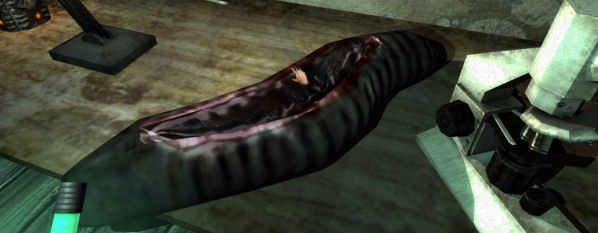RPS Advent Game-o-Calendar: December 4th
Hold my hand. Squeeze tight. It's time to open our RPS-approved fairtrade advent calendar. What's behind the door...
Good lord, it's chocolate. Thanks, Fairtrade. Om nom nom nom.
But for you?
It's Penumbra Overture!
There's a bane in my life. It's obscure first-person adventure games. Since the days of earth's greatest evil, Myst, and onwards, these hateful monstrosities have chased me around every corner along the path I've taken. Generally they're reasonably well rendered, and the positive comments end there. Ghastly voice acting, hideous scripts, meaningless puzzles, and the stupid belief that action is something that can be thrown in at the last minute.
Things didn't bode well for Penumbra Overture.
I do like a pleasant surprise. Penumbra is about the most exciting thing to have happened in adventure games in 2007. To re-use the same joke I put in my Gamer review, it's The Little Engine That Could. Originally developed as a tech demo for a student project, the often remarkable engine has been given a game to not only show off its fantastic lighting and physics (Newton Game Dynamics), but also create a genuine air of intrigue.
The story isn't stunningly original. In fact, it falls into the cliche that's endemic in games of this type: you are uncovering a mysterious series of events by discovering letters scattered around the barren locations, which piece together a tale of secret experiments and horrible, monstrous accidents. And it never really raises the bar beyond this. However, where Penumbra receives considerable forgiveness is through the atmosphere. It's genuinely spooky. It doesn't reach the same levels by any means, but it has a feel of Thief III's The Cradle about it.
The puzzles once more appear as if they're going to cause giant sighs. But rather than fixing broken machines by arbitrarily clicking in that Myserable way, here the physics play a significant role. You apply the logic of the real world to approach the in-game problems. When encountering a lake of very thin ice, you realise that the way to cross it is to increase your surface area. What's around? A fragile looking shed built from corrugated iron sheets. Hit that thing with your pick-axe and it falls apart. Take the resulting pieces and use them as stepping stones. It's not quantum physics, but it's intuitive application of the environment. And it's this that makes it quite so significant.
As adventure after adventure relies on dated Click A on B puzzles, and shooters introduce destructible environments but do nothing with the broken remains, Penumbra very modestly suggests some intelligent ideas. Need to reach a ventilation duct high in the wall? Then build yourself a ramp out of the materials you can find, or break down.
So the story sucked, and the writing wasn't too hot, and the textures are often dreadful. But Penumbra quietly whispers ideas that absolutely every developer should be sitting up and noticing. Half-Life 2 plays around with these notions to a degree, but rarely depends upon them. And I'm stuck to think of anything else that has come close to letting player improvisation be the solution to its challenges.
Here's my dream: That one day a developer with a fair amount of cash takes a look at Penumbra, and a look at Fahrenheit (Indigo Prophecy, US-chums), and gets inspired by them. Two flawed games, but both with incredibly significant ideas that games should be including.





